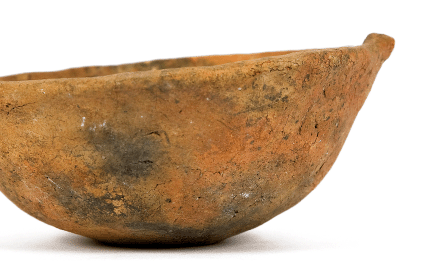
The collections of the Anthropological Workshop
The Anthropological Workshop of the PMA was established in 1962 and deals with the biology of ancient human populations, working closely with the medical sciences (human anatomy man, radiology, orthodontics), human sciences (archeology, history) and natural sciences (biology, ecology) and exact sciences (mathematics, statistics). It describes and explains the process of bio-cultural evolution of human, based on the above mentioned studies of human skeletal remains, found during the excavations, using specific methods and examination procedures allowing for the reconstruction of the biological condition of the prehistoric and historical groups of people. The basic importance has the anatomy of the skeletal system and bone anthropometry, dealing with describing the characteristics of the human skeleton according to certain rules and examination procedures, ie. the description of morphological and non-metric features of the bones of the skull and postcranial. The morphological structure of the skeleton allows for the assessment of gender, age, body height at the time of death of the individual. An important area is also a study of pathological changes, perceptible in the bone material. The paleodemographic analysis includes inter alia study of life expectancy, the structure of mortality by age and sex of the deceased, condition and biological dynamics of the prehistoric groups of people. The new researches in the field of biological and historical anthropology consist in the analysis of trace elements in the human bones and soil, allowing the identification of nutritional conditions in prehistoric populations. There are also used methods of identifying DNA sequence, including mitochondrial DNA (in cooperation with specialized institutions of the university of Warsaw (UW) and Maria Curie-Skłodowska University (UMCS)), enabling the tracking of genetic relatedness at the individual and interpopulational level. The Anthropological Workshop of the PMA also uses computer techniques of processing the statistical data enabling performing comparative analyzes, ie study of the variability within and outside the group. Methods are also implemented enabling to determine the standard of living of the prehistoric and historical populations on the basis of determining the nutritional conditions and health status. Also analyzed is the level of stress (ie a reaction of the body to factors affecting living conditions) visible in the morphological, chemical, genetic or radiological examinations of the skeleton. The collections of the Anthropological Workshop of the PMA comprise inter alia: a skeleton from Janisławice, skeletons from the site Giżycko Palmowo, Neolithic skull with a double trepanation of the hull from Dłubań, skeleton from Woźna Wieś, skeleton from Żemiki Górne, bone material from the cemetery in Czekanów, cast of the skull from Warsaw-Grochów and its reconstruction, selected casts of skulls (made at the Institute of Anthropology in Wroclaw) illustrating the evolution of the human forms.